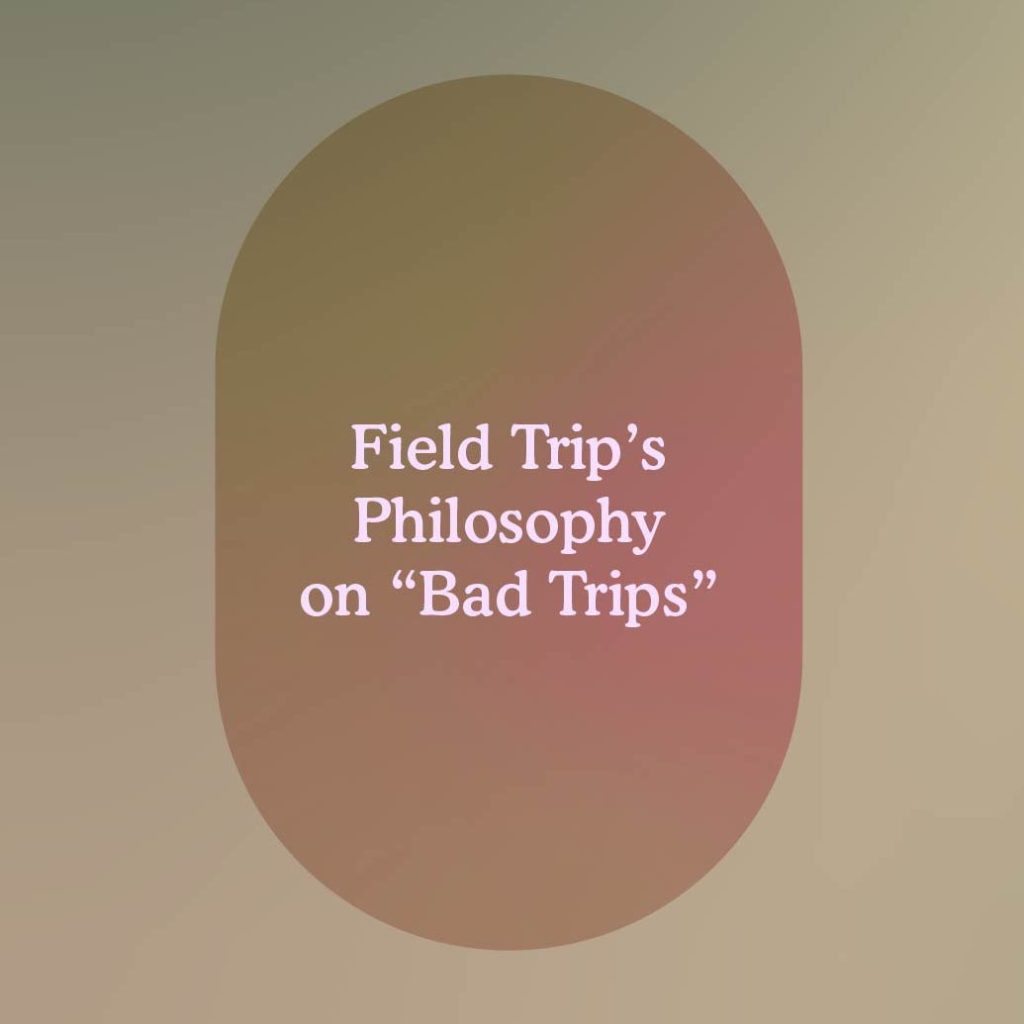
A common question clients have during the preparation phase is, “will I have a bad trip and what happens if I do?” Usually, this comes from a client with no prior psychedelic experience or with a history of under-supported psychedelic experiences. There are numerous stories in culture and the media of people who had traumatizing experiences while using recreationally with friends.
Ketamine induces an altered state that can include euphoria, joy, gratitude, anger, disappointment, fear, confusion, happiness, calm, and neutrality. Ketamine can also cause disconnection from sense of time, body, physical environment, and comprehension of the world. Each journey is unique and can vary both within one session and throughout the course of treatment.
Everyone has a different reaction to emotions and even seemingly ‘good’ emotions like joy and wonder, can feel overwhelming. Our typical ways of being in our bodies become safe, even if they are uncomfortable and unsustainable. Moving outside this expected way of experiencing ourselves and our environment can result in fear.
The dissociation caused by ketamine, while often perceived as freeing and healing, can also feel challenging especially for people who rely on physical grounding to regulate their nervous systems.
So, how does Field Trip mitigate a ‘bad trip?’ We start with a low dose of ketamine in your first session to help you get familiar with the sensations and feelings then slowly increase your dose over the course of your journey. We are always ready to support you if you begin to have a challenging experience. Our team of expert medical and mental health staff are highly trained in working with clients in a psychedelic state and will keep you safe and secure during your dosing. So-called bad trips typically occur when a person has a different-than-expected experience and does not have support to integrate when they return to baseline. At some point leading up to your first ketamine exploration, your therapist will likely engage you in a conversation regarding the therapeutic use of touch. Therapeutic touch in our clinics is always non-sexual and used only with the explicit consent of the patient. It may look like the therapist placing a comforting hand on your shoulder or offering a pillow for you to squeeze through a difficult part of the psychedelic journey. Consent to therapeutic touch is not a requirement for KAP, but many patients find it to be a helpful option to have available. We will also provide you items that evoke comfort – a weighted blanket, pillows, essential oils, music, and more. You are welcome and encouraged to bring your own objects from home that may bring you joy and happiness, like photos of family members or a relic from childhood. You and your team will discuss the case of a challenging moment in your preparation sessions, and all precautions will be taken to support you during the hard times. It is perfectly normal to experience heavy moments of revisiting old wounds. Oftentimes, this is where the real work comes in and profound healing is on the other side. We are here for you.
Integration through talking to your Field Trip therapist, engaging in self-care practices, spending time in nature, self-reflection, is paramount in creating meaning and generating safety after a challenging ketamine journey.
Field Trip has created an environment where big, challenging experiences are expected and welcomed. Your therapist will help you create a plan to ground yourself and return to safety, while continuing to grow into your authentic self.
Field Trip Health has clinics across Canada in Toronto, Montreal, Vancouver, Ottawa, Hamilton, Kitchener-Waterloo, Thunder Bay, and Sault Ste. Marie, and an at-home program for those who live more than an hour from the nearest clinic. If you are ready to begin your journey toward healing and build your personalized treatment plan, then book a free discovery call with one of our team members.